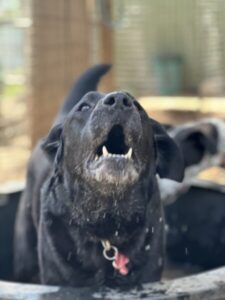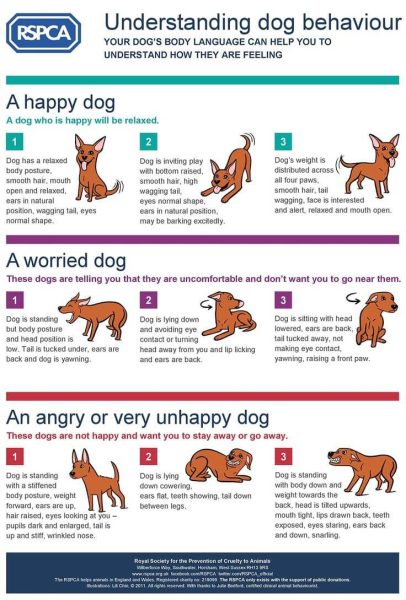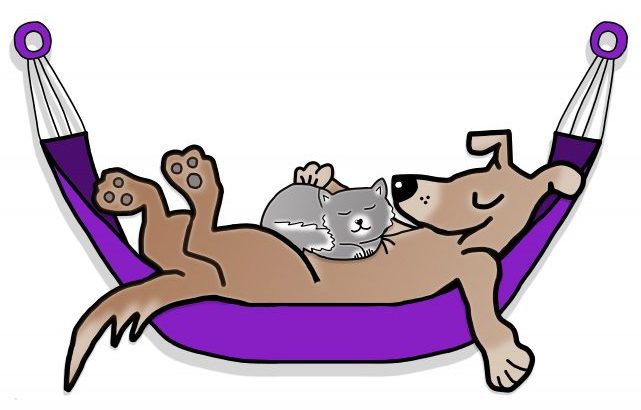
Our Purple People love it here so much, they stick around forever! That means job openings are about as rare as a Komondor sighting. (Not familiar? Google that magnificent mop-disguised dog breed – you’re welcome!)
We’ve got all sorts of roles: Team Leader, Core Team Members, Junior Members, Receptionist, Trainer, and Grounds Person. But here’s the plot twist – everyone’s a cleaning superhero! About 90% of what we do involves making things sparkle and shine.
Think of this as a job with a built-in gym membership – our team clocks 10,000 steps daily! So bring your comfy shoes and your energy. And, we bring the party to every task! Even the repetitive stuff gets our full enthusiasm because that’s just how we roll. Our crew hustles from sunrise to sunset, making sure every furry guest feels safe, happy, and totally pampered.
For an inside scoop on how we do things around here, dive into our website!
Volunteering
- We can’t offer volunteer gigs because we’re not a not-for-profit. (Legal stuff, you know!)
Junior & Part-Time Jobs
- Heads up: We’re not doing after-school or weekend shifts right now.
- Our young crew? Absolutely legendary! They bring an amazing work ethic and maturity that would impress anyone.
- You’ll need to be at least 15 to join the team (sorry, younger folks!).
- Want in? Start with your school’s work experience program – it’s our try-before-you-apply method! Chat with your careers practitioner to set it up. See the Teacher notes below.
Senior Jobs
- Here’s how we roll: We’ll kick things off with a week or two of casual work to see how we vibe together. Then we’ll have a chat about it! If all goes well, there’s a three-month trial period. Ready to apply? Send us your resume – and make sure to highlight your experience with furry friends! ????
Work Experience / Placement
- Love animals? We love helping students chase their dreams of working with them! We’re all about giving placements to awesome students. (Teachers, check out the notes below for the details!) Sometimes we even offer ongoing one-day-a-week placements for students who’ve nailed their first week with us. And yes, school-based traineeships pop up too!
TAFE & Uni Students
- TAFE & Uni students: You know the drill – just go through your usual placement channels at your institution, and we’ll see you soon!
Teacher Notes (The Real Talk!)
Let’s bust a myth: Yes, we get to cuddle adorable pups (dream come true!), but that’s just one slice of the pie! The reality? We’re juggling all kinds of tasks – from cleaning duty to playing referee between different doggy personalities. Big dogs can be intimidating powerhouses, while tiny ones pack surprising sass and attitude in pint-sized packages.
Real talk: Adding work experience students to our already packed-to-the-brim days is like adding extra toppings to an already overflowing pizza – it’s a lot! But we do it because we believe in helping future animal lovers get their start.
Students need to know they’re signing up for serious physical activity – but don’t worry, they’ll be buddied up with a team member the whole time! We’ll rotate them through all the main tasks during the week so they get the full behind-the-scenes experience.
What’s on the agenda?
✨ Cleaning kennels, crates & the cattery (making everything sparkle!)
✨ Prepping and serving up gourmet pet meals (yes, we’re fancy like that)
✨ Tackling the never-ending laundry mountain
✨ Poo patrol duty (someone’s gotta do it!)
✨ Water bowl refreshes
✨ Giving pups their spa treatments in the bath
Keeping this place buzzing takes mature, switched-on staff who stay three steps ahead. Safety is our number one priority – for both the animals and our team – especially when things get unpredictable (which, let’s be honest, happens when you work with animals!). So we’re looking for students who can handle themselves with mature energy (think dinosaur!).
Good news: We’re flexible with timing and can take two students at once! It’s actually pretty cool – students can team up on tasks, learn from each other, and build those teamwork skills. Win-win!
Want your students to absolutely crush it here? They’ll shine if they bring these qualities:
- Ready to follow instructions and roll with the flow
- Curious minds who aren’t afraid to ask questions
- Excellent listening skills (seriously important!)
- Sharp eyes and quick thinking when things get interesting
- Self-starters who spot what needs doing and just do it
- Positive vibes and a friendly attitude with customers
- Physical fitness and stamina to power through the whole day
- Reliable ride sorted out (no flaky transportation!)
We’re pumped to welcome enthusiastic, capable students who are ready to dive in, learn tons, and help us keep this amazing place thriving!
We’re all about respecting pronouns here – inclusivity is part of our Purple People DNA!
⚠️ Important Note for Schools: We totally get it – privacy rules mean you can’t always share everything about your students. But here’s the thing: working with animals comes with real risks! We’re super grateful when you can give us the full (and confidential!) picture so we can make smart decisions that keep everyone safe in our wonderfully chaotic environment. Open communication = everyone wins!
Students with Special Needs:
Here’s the honest truth – we would love to be inclusive, but we’ve got some real limitations. Since our team is small and our days are hectic, we cannot provide the level of supervision some students may need. Additionally, our space is super cozy (aka our kitchen is tiny!), so we can’t accommodate support aides in the area with students. Finally, there’s a unique challenge: our dogs can become a bit agitated around unfamiliar people, which can raise energy levels in the yard. This can have a ripple effect across our grounds.
We wish we could accommodate everyone; however, our top priority is keeping everyone safe and happy (furry friends included)!
But hey, we’d still love to show you around! Tours are totally on the table – come see our operation in action! We absolutely love bragging about what we do and showing off exactly how much hustle, heart, and hard work go into keeping 150+ furry VIPs happy, healthy, and living their best lives!
Hot Tips (From a Career Pro!)
Hey, it’s Fay here! Fun fact: I used to be a career practitioner in another life, and now I’m your go-to person for work experience enquiries at NBKC. Here’s the deal – these tips are going to level up your job-hunting game because (plot twist!) asking for work experience IS job-hunting!
Let’s get you ready to nail it:
- Reach out face-to-face, by email, or phone – those are your golden tickets! But skip the social media DMs – we’re not glued to those threads, so your message might get lost in the void!
- Time to be brave and make that call or send that email YOURSELF! Here’s the thing: your mom, your aunt, or your teacher won’t be working here – YOU will! So this is your moment to shine. (No helicopter adults allowed! )
- Phone Etiquette 101: Please, PLEASE don’t open with “Do youse do work experience?” Trust me, that question earns an instant eye-roll. I immediately imagine the sheep (ewes) bleating. Instead, introduce yourself properly and show you’ve done your homework!
- Timing Matters: Don’t hit us up on Friday expecting to start Monday! We need time to sort out all the legal paperwork (it’s a thing, trust us). Plan ahead and give us some breathing room!
- Real Talk: Generic copy-paste applications? They go straight to the “meh” pile. But tell me about YOUR passion for animals and why you’re excited about THIS opportunity? Now you’ve got my attention!
- Proofread Like a Pro: Get a friend or teacher to eyeball your documents before hitting send! Typos and grammar goofs are distracting, and employers are crazy busy. You want them focused on how awesome YOU are, not your spelling mistakes!
- What Makes You Stand Out: Tell me WHY you want to work at NBKC specifically! Share your animal stories, your experiences, your passion. That’s what makes me stop scrolling and think, “We need to meet this person!”
- The Paperwork Reality: There’s a mountain of documents and signatures needed for school placements (bureaucracy, am I right?). So don’t leave it to the last minute – give yourself plenty of time to get everything signed and sorted!
- Transportation Check: Sort out your ride situation BEFORE you arrange the placement! Nothing’s worse than getting everything set up only to realize you have no way to get here. Save yourself (and us) the headache!
- Blow My Mind: Want bonus points? Ask me a smart question about our business! How do you do that? Easy – stalk our website (in a totally non-creepy way!) and dig up something you’re genuinely curious about. Show me you’ve done your research and you’re already miles ahead of the competition!
Phone Call Game Plan (Don’t Wing It!)
- Prep like a boss! Get your thoughts together before you dial.
- Write down your questions so you don’t forget them mid-conversation (brain freeze is real!).
- Have your proposed placement dates locked and loaded.
- Script your intro! Try something like: “Hi, my name is _____, I’m in Year 10 at ________, and I’m calling to ask about doing work experience with you.” Write it down so you sound confident!
- Be ready to repeat your intro if you get passed around (happens all the time!). You might feel like a parrot, but you’re actually bringing each new person up to speed on why you’re calling. It’s all part of the process!
- Take notes while you chat! Especially catch the name of who you’re talking to. Ending with “Thanks for your time, Fay” instead of just “Thanks, bye!” is like unlocking a secret sparkling gold star – instant brownie points!
- Do a practice run with a friend or family member first – it seriously helps calm those nerves! Think of it as your dress rehearsal.
At Work Experience
What to Bring to Work Experience (Your Survival Kit!)
Hours: We usually roll from 8 a.m. to 4 p.m., but we’re flexible! Pro tip though: Come early, or you’ll miss the BEST part of the day – puppy uptime when the dogs are at their most energetic and adorable!
- Comfy & sturdy shoes – you’ll be racking up at least 10,000 steps per day (hello, free workout!)
- Your lunch (fuel up – you’ll need the energy!)
- Morning tea is on us! But if you’ve got special dietary needs, feel free to BYO.
- Comfy clothes that you don’t mind getting dirty (this is a badge of honour here!)
- Water bottle (we’ve got refill stations to keep you hydrated all day)
- Broad-brimmed hat (especially crucial in summer – sun safety is serious!). Sunscreen is available to slop on.
- Any personal meds you need (asthma pump, hayfever tablets, Panadol, etc.)
- Long pants/trousers are strongly recommended – they’re your armour against enthusiastic puppy scratches!
- Winter placement? Layer up! It gets chilly, and you can always peel layers off as you warm up.
- Any paperwork for your Animal Studies Certificate (if applicable)
- A copy of your school’s work placement papers (don’t forget this one!)
- Orange safety whistles – you’ll wear these during the day and leave them here overnight.
Induction (Meet & Greet)
On your first morning, we will cover the following topics:
- Introductions: You’ll meet the staff on duty, including their preferred pronouns.
- Team Leader: You will be introduced to your Team Leader, whom you can contact if you’re feeling uncertain or unsafe.
- Facilities: We will show you the locations of the toilet facilities and the staff room (Caravan).
- Water Bottle Refill: You’ll learn where to refill your water bottle.
- We will inform you where to place your personal items, including food.
- Where to find the sign-in/out sheet.
- Use of phones: Private matters can be addressed during breaks.
- Your buddy for the day (who you will shadow). Duties are divided among staff, so we assign you to a new staff member daily.
- Basic emergency processes. Including the use of the orange whistle (provided) & radios. Items remain the property of NBKC.
- Body language discussion/questions (as per the above picture).
- You might be asked not to interact with some dogs (or cats) in our care, but we will let you know who and why.
Dog Body Language 101:
Understanding what pups are “saying” with their body language is super helpful! Most of our furry guests are happy campers, but sometimes they get nervous or worried. Here’s the important part: dogs can flip from chill to stressed in a heartbeat, no matter how friendly they usually are. Stay alert!
Golden Rule: Dogs need to feel like they own their personal bubble! So DON’T pat them on the head or grab their collar unless they specifically invite you (and trust us, you’ll know when they do). Consent matters in the dog world too!
New to reading doggy signals? Check out the RSPCA sheet below – it’s like a cheat sheet for understanding what our four-legged friends are trying to tell you!

Whale Eye

Watch for “Whale Eye”: Another big clue that a dog is uncomfortable? When you can see the whites of their eyes (we call this “whale eye” – pretty descriptive, right?). This usually means the pup needs a moment to process what’s happening and figure out how they feel about it. Spotted a whale-eyed doggo? Give them lots of space, speak softly and calmly, and avoid staring them down. They’ll appreciate the breathing room!


